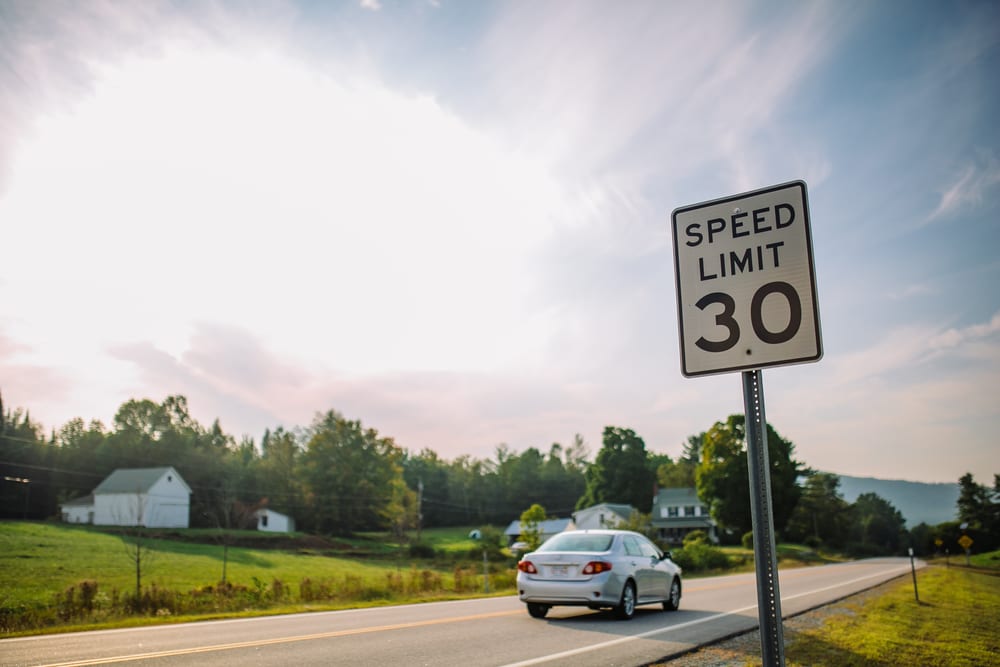

Following is an overview of the laws, limits, and fines as they relate to speeding traffic violations in the state of Virginia.
Speed limits in Virginia
70 mph: maximum allowable speed limit on rural interstates and freeways
65 mph: urban interstates and freeways
55 mph: other highways
45 mph: maximum speed limit for trucks, tractors, vehicles designed to transport property, motor vehicles towing self-propelled vehicles, and house trailers
35 mph: highways within cities or towns (excepting interstates and other limited access divided highways)
35 mph: non-surface-treated highways
25 mph: business and residential districts
School zones are as posted.
Virginia code on reasonable and prudent speed
Maximum speed law:
According to section 46.2-861 of VA vehicle code, “A person shall be guilty of reckless driving who exceeds a reasonable speed under the circumstances and traffic conditions existing at the time, regardless of any posted speed limit.”
Minimum speed law:
Sections 46.2-877 and 46.2-804 states:
“No person shall drive a motor vehicle at such slow speed as to impede the normal and reasonable movement of traffic.”
“A person driving at less than the normal speed of traffic shall drive in the lane nearest the right edge or right curb of the highway when such lane is available for travel. There is an exception to this requirement if the right lane of a particular highway has been reserved for slow-moving traffic.”
Due to variations in speedometer calibration, tire size, and margins of error in speed-detecting technology, it’s uncommon for an officer to pull a driver over for going less than five miles above the speed limit. However, technically any amount over can be considered a speed violation so best practices are to stay within the limit.
While it may be difficult to fight a speeding ticket in Virginia due to the absolute speed limit law, a driver may choose to go to court and claim their innocence based upon one of the following:
The driver may oppose the determination of speed. In order to claim this defense a driver must know how his or her speed was determined and then learn how to disprove its accuracy.
A driver may claim that an emergency situation caused the driver to break the speed limit in order to prevent injury or damage to themselves or others.
The driver may claim a case of mistaken identity. If a police officer clocks a driver speeding and subsequently has to find them again in traffic, it’s possible that they could have made a mistake and pulled the wrong car over.
Penalty for exceeding the speed limit in Virginia
First-time violators may:
Be fined up to $8 per mile over the speed limit, plus a $51 processing fee and $200 fee for speeding in a residential zone
Be sentenced to up to 10 days of jail time
Have their license suspended (based upon a point system)
Penalty for reckless driving in Virginia
In Virginia, exceeding the speed limit by 20 mph – or driving at over 80mph regardless of the speed limit – is considered reckless driving.
First-time violators may:
Be fined up to $2,500
Be sentenced to up to one year of jail time
Have their license suspended (based upon a court order or the point system)
Violators may be required to attend a driver improvement clinic.



